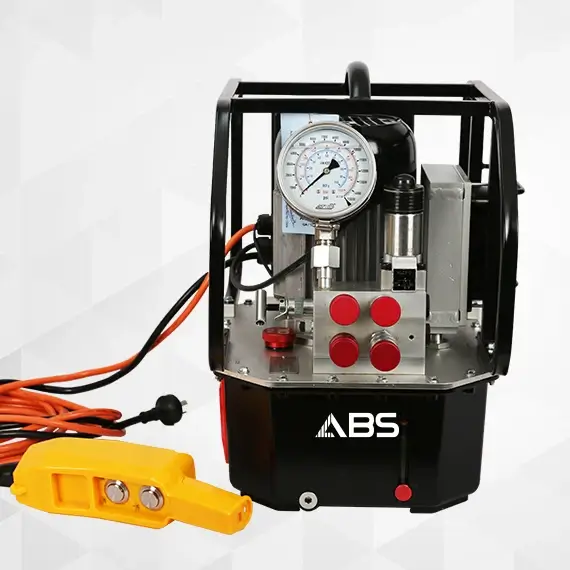Key Advantages
Electric-Powered Convenience
No requirement for compressed air— excellent for distant enclosed or risky places.
High Hydraulic Output
Produces approximately 700 bar (10,000 psi) for hefty bolting jobs.
Precision Control
Delivers exact torque essential for flange and structural bolted joints.
Multiple Port Options
Available in 1-port or 4-port variants accommodating single/multiple tools.
Standard 15-Foot Hose
Twin-line hose providing flexible reach for sizable equipment or flanged joints.
Why Gulf Industries Trust ABS Torque Pumps
Operations within the Gulf region require equipment that can endure severe heat, dusty conditions, and extended duty cycles. The ABS HFEL-230 fulfills these needs superbly with its tough design, liquid-filled gauges that resist vibration, plus electric controls offering dependable performance— making it a top pick among EPC contractors and maintenance teams throughout the area.
Industries We Serve in Saudi Arabia
Oil & Gas (refineries, wellheads, pipelines)
Petrochemical & Chemical Processing Plants
Power Generation (CCGT, renewables, substations)
Mining, Steel & Cement Plants
Heavy Equipment & Infrastructure Projects
Ideal Applications
Flange tightening in shutdowns and turnarounds
High-precision bolt torquing in hazardous zones
Simultaneous multi-wrench operations with 4-port pumps
Workshop or site-based controlled bolting tasks
After-Sales & Rental Support in Saudi Arabia
Local Calibration & Service Centers in Dammam and Jeddah
Quick-Response Rental Options (wet & dry kits) available for shutdowns and projects
On-site support and application guidance by ABS technicians
Spare Parts & Repairs available locally with 24×7 helpline support
Contact: Mrashid@absgroup-arabia. com • (+966) 509775727
ABS HFEL-230 Electric Pump Datasheet


